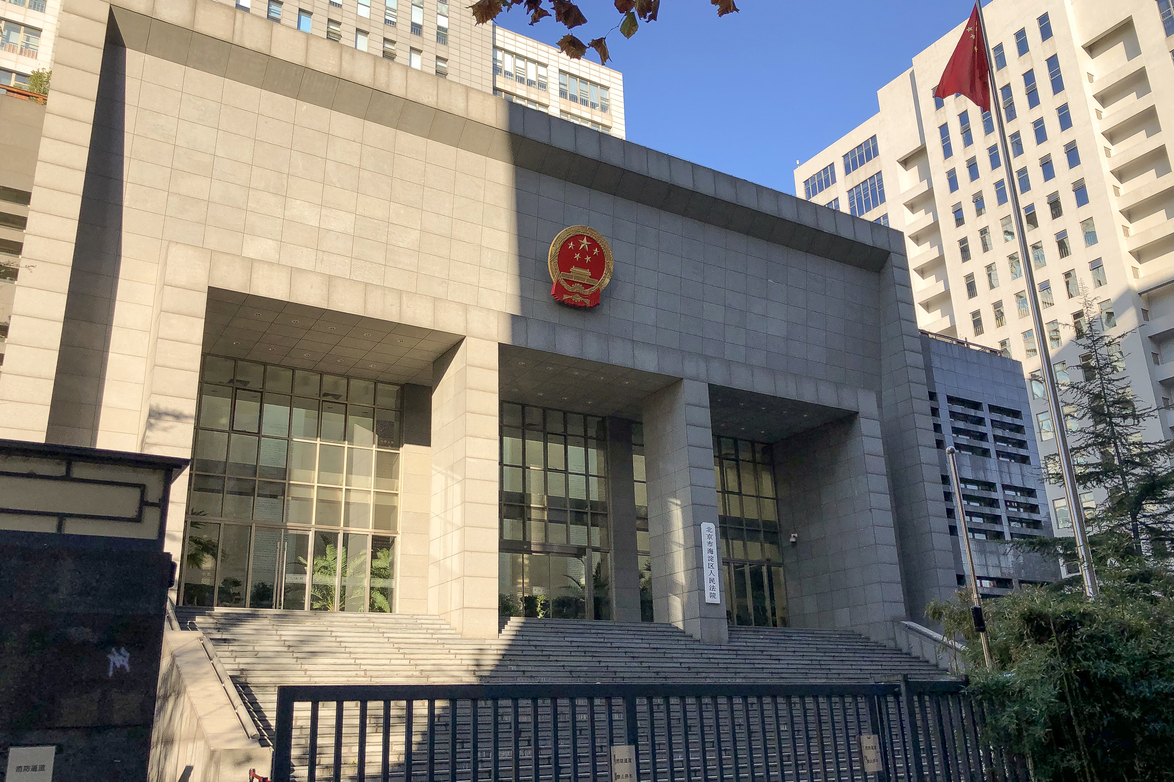
Sep 22, 2023 | Issue 2, Volume 64
From “Space Law” to “Space Governance”: A Policy-Oriented Perspective on International Law and Outer Space Activities
By Dr. Gershon Hasin
View Full Article
Developing activities in outer space, many driven by private actors, coincide with the resurgence of competing systems of world public order. An authoritarian bloc, led by China and Russia, promotes a competing world order based on values, including authoritarian capitalism, that differ greatly from the liberal rules-based public order led by the United States. In the space arena, interactions are complicated by two changing circumstances: the divergence between two frameworks, the U.S.-led Artemis program and the Chinese-Russian program; and the obsolescing of applicable norms due to technological innovation, changing participants, and increasing disputes. These developments require reevaluating paths toward securing minimum and optimum orders in space.
Predominant legal scholarship for space, however, has approached emerging claims and negative externalities in space from the perspective of “law,” as a body of rules, rather than as a field of “governance.” Such an approach fails to appreciate the international lawmaking process and overestimates the authority, control, and endurance of applicable norms. This article proposes that under modern circumstances, it is preferable to detach from “space law” for a “space governance” mode of thinking based on policy-oriented jurisprudence. The article outlines six analytical components of the proposed space governance framework which is geared toward a contextual appreciation of interactions between various participants. It then utilizes the approach to confront two urgent aspects of space governance. First, it proposes a regime of coordination between the two systems of world public order which may alleviate conflicts in lunar operations. Second, it demonstrates that the correlating interests of the competing blocs generate incentives for installing a cooperation regime of non-proliferation and testing prohibition for anti-satellite weapons.
Cover image credit

Sep 22, 2023 | Issue 2, Volume 64
The Wild West of Company-Level Grievance Mechanisms: Drawing Normative Borders to Patrol the Privatization of Human Rights Remedies
By Lisa J. Laplante
View Full Article
This Article is the first to present a normative framework that challenges the privatization of remedies established by corporations to resolve human rights violations which they contribute to or cause. The need to draw such normative borders responds to an unprecedented innovation of ordinary company complaint mechanisms to handle human rights grievances suffered by individuals and communities. This development traces back to the 2011 approval of the United Nations Guiding Principles on Business and Human Rights (“UNGPs”) which call on companies to develop operational-level grievance mechanisms (“OGMs”) to handle a range of claims which may include those involving serious harms. This Article shares empirical evidence from a six-year study that demonstrates a notable uptick in companies developing OGMs, especially as they come under increasing pressure from private and public sources to comply with the UNGPs. Surprisingly, these redress mechanisms operate with virtually no government regulation or oversight even though the right to an effective remedy and holding private actors like companies to account go to the core of protecting fundamental rights. Remarkably, there has been minimal challenge or discussion about this concerning situation, most likely due to some ambiguities in the UNGPs and the lack of guidance from the U.N. bodies in charge of their implementation regarding any normative limits on the use of these private remedies. Indeed, an opinion issued by the Office of the High Commissioner for Human Rights in 2013 concerning a high profile OGM established by the Barrick Gold Corporation even suggests that company grievance mechanisms may operate beyond the normal boundaries of the law and require greater normative flexibility, drawing an analogy to administrative reparation programs employed in post-conflict settings. This Article challenges this analogy and the resulting conclusion through three normative arguments. First, administrative reparation programs in post-conflict settings are state-led initiatives that operate within clear normative boundaries and have been subject to review by international human rights bodies. Second, this external review occurs because governments can be held liable for failing to fulfill two positive duties: the obligation to protect human rights even when violated by private actors, and the obligation to ensure the right to access an effective remedy if such protection fails. Finally, a state cannot delegate either of these positive obligations to a private entity like a company, at least not without some oversight. This Article argues that because the UNGPs also recognize these foundational principles, they should be interpreted to support more regulation of OGMs—a position supported by recent judgments issued by the Inter-American Court of Human Rights. This Article concludes by acknowledging the current reality in which OGMs may serve as the only remedy available to some communities in states with weak remedial systems, and proposes a new agenda to ensure that OGMs operate subject to oversight to ensure they are effective and thus serve the ultimate aim of victim redress and corporate accountability.
Cover image credit

Sep 22, 2023 | Issue 2, Volume 64
Finance Against Law: The Case of China
By Shitong Qiao
View Full Article
Can there be a highly developed financial market without legal protection for investors and creditors? The influential law and finance literature is built on the assumption that legal protection is essential to the development of an impersonal financial market. This Article investigates how two financial markets of trillions of dollars have developed extralegally in the past two decades despite the risk of regulatory enforcement and contract defaults. Specifically, I examine (1) how Chinese internet companies from Sina to Alibaba have designed contracts to circumvent the Chinese government’s ban on foreign capital in its internet industry and (2) how Chinese entities and foreign investors contract out of China’s stringent regulations on the issuance of international bonds. These extralegal contracts incur significant legal risks and are unlikely to be enforced in Chinese courts. Nevertheless, numerous international investors have invested in China through such contracts, providing capital essential to the country’s economic growth over the past two decades. My research reveals that (1) the extralegality of both the international capital market supporting China’s internet companies and the market of Chinese-issued international bonds originates from China’s struggle between development, which requires access to the international capital market, and control, which requires keeping both Chinese enterprises and foreign capital on a short leash; and (2) networks of Chinese state actors, market intermediaries, and Chinese corporations concentrated in certain industries replace judicial enforcement in supporting financial development of a remarkable duration and scale.
Based on the above case studies, this Article coins the term “finance against law,” challenging the necessity of law to developing impersonal and sophisticated financial markets. Law and finance scholars are right that impersonal finance needs the backing of the state, but wrong to assume that the state can only back impersonal finance with legal institutions. China’s approach, “governing by extralegality,” sheds light on the role of the state and politics in extralegality, pointing to a new direction that scholars of law and social norms who mainly focus on private ordering should attend to. The Chinese experience also demonstrates an approach of developing markets by circumventing existing legal and regulatory barriers, further complicating the relationship between law and development.
Cover image credit

Sep 22, 2023 | Issue 2, Volume 64
State-Academic Lawmaking
By David Hughes and Yahli Shereshevsky
View Full Article
What role does legal scholarship play in the development of international law? How do states advance a preferred international legal position when the formal methods of creating or amending the law are unavailable? As global stagnation and great power competition increasingly preclude access to the formal methods of international lawmaking, those states that seek to drive international agendas to gain or maintain influence are pursuing novel methods to shape international law. This article identifies one such method, what we term “state-academic lawmaking.” State-academic lawmaking describes an observable, generative method by which purportedly independent academic articles, authored by an esteemed legal expert(s), and published in a leading law journal, are advanced as an informal means of international lawmaking.
By producing purportedly independent academic articles, state-academic lawmaking couples the state’s formal lawmaking authority with the value of scholarly neutrality and expertise that is assumed of work that is independently published in a legal journal, but which also makes an explicit lawmaking claim. In this article, we present a series of case studies that document a form of informal lawmaking that has increasingly been used by the United States, China, and other influential states. The case studies that document this burgeoning lawmaking phenomenon describe how these powerful, but diverse, states use legal scholarship to pursue legal agendas in the most contested fields of international law – the use of force, international humanitarian law, and the law of the sea.
Through the lens of state-academic lawmaking, we offer a critical and socio-legal account of the microprocesses that drive informal lawmaking. These observations provide important insights into broader questions about international law that challenge existing understandings of how the law develops. They evidence a shift from vertical to horizontal lawmaking that presents a novel conception of the relationship between international law and power, that bears implications for how states from the Global South can amplify their voices within the lawmaking processes from which they have traditionally been excluded, and that complicates understandings about how states on either side of the so-called authoritarian-democratic divide engage with international law.
Cover image credit

Sep 22, 2023 | Issue 2, Volume 64
Bend, Don’t Break: China’s Approach to the International Human Rights Order
By Jackson Neagli
Full Article
I argue that Beijing is seeking to alter, but not undermine or replace, the international human rights order. Generally speaking, I agree with Andrew J. Nathan that “the liberal international order is resilient and that China prefers to join it rather than to overturn it.”19 It follows that, with respect to human rights in particular, Beijing “does not appear to be aiming either for major changes in the regime or for its abandonment,” but instead “appears to be content to work within the existing human rights institutions to shape them to its own interests.” Put otherwise, Beijing is seeking to bend, not break, the current human rights order.
Cover image credit

Sep 19, 2023 | Issue 1, Print Journal, Volume 64
Courts Without Separation of Powers: The Case of Judicial Suggestions in China
By Minhao Benjamin Chen & Zhiyu Li
View Full Article
Like courts everywhere else, socialist courts are tasked with settling disputes. Their decisions are backed by the force of law. But unlike courts everywhere else, socialist courts are also required to support official ideology and policies. They are subject to legislative supervision and party leadership in the performance of their duties. The repudiation of the notion of separation of powers and the instrumental conception of law are conventionally taken to be defining—and defective—aspects of socialist legality.
But the political accountability of socialist courts could also be empowering. Because socialist courts answer, in theory, to the party and the people, they have the warrant and duty to contribute to the orderly administration of society. Constitutional scripture does not prohibit socialist courts from venturing beyond the confines of adjudication to address issues not presented for resolution.
We study how courts in the world’s largest socialist regime intervene in policy domains ranging from public health to education to crime by making judicial suggestions. These suggestions identify issues that go beyond the legal questions raised by a case and may be directed to private actors like business enterprises and public entities like governmental agencies. Though not binding on their recipients, judicial suggestions are often acknowledged, sometimes adopted, and have occasionally even precipitated legal reform.
Our exploration of judicial suggestions in the People’s Republic of China illuminates a function that is available to socialist courts because of their political subordination to the party-state. More broadly, the approach exemplified here steps outside the rule of law and judicial independence paradigms to examine how constitutional doctrine shapes the boundaries of institutions, thereby contributing to a more complete understanding of socialist courts and the roles that courts might usefully take on in a world without separation of powers.
Cover image credit















